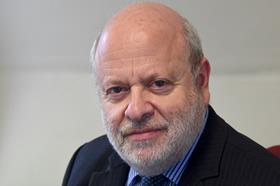Here is a generalisation: those who deal with human wrongdoers, whether it is the police or people responsible for lawyer discipline, tend to have a dismal view of human nature. They see only those who commit sin, and after speaking to them it is necessary to read ‘The Lives of the Saints’ for a few hours to rebalance our opinion of humanity.

At any rate, I felt like that after immersing myself in the recent ‘European Union serious and organised crime threat assessment’ put out by Europol. It is Europol’s flagship report assessing serious and organised crime in the EU.
(Before anyone makes a Brexit point, the analysis covered a period during which we were members of Europol, and even now we consider its work so useful that there is a special title in the Brexit deal, the Trade and Cooperation Agreement, listing how we will continue to cooperate with Europol, including on reports such as this one.)
Lawyers appear in the report as HVTs, high value targets, otherwise described as key enablers and facilitators of criminal processes. HVTs include not only the chief organisers of crime, but also specialist expertise or access to crucial contacts or infrastructures: technical experts, legal and financial advisers and other service providers.
Here we go again. A few weeks back, in reports published by the OECD and the United Nations, we were professional enablers. Now we are lumped in with the criminals themselves.
There is even a helpful illustration in the report showing all the baddies on one page. We see the fences and the document fraudsters appearing alongside the legal advisors.
Or if you prefer your information in written form, there is the following sentence: ‘HVTs may be embedded in a criminal network or operate independently, providing vital criminal services as money brokers, hitmen, lawyers …’ There is no difference noted here between hitmen and lawyers, no qualification to show that all hitmen are criminals as against an insignificant percentage of lawyers.
Much of this, insofar as lawyers are concerned, is about money laundering. We are told that ‘Money laundering is an essential component of the vast majority of criminal operations. Most groups and networks (68 %) use basic money laundering methods such as investing in property or high-value goods. Some rely on slightly more sophisticated methods such as the use of cash-intensive businesses.’
The fact that such lawyer abuse is now happening on such a regular basis is a failure internationally of our professional bodies.
For instance, regarding European anti-money laundering (AML), we were corralled into its ever-ratcheting prospectus on the understanding that doing so would improve matters. But it seems that, despite encumbering ourselves with an elaborate and expensive mechanism (not to mention one which breaches one of our most sacred rules, the principle of confidentiality, through the suspicious transaction reporting system), we are facing worse abuse, and without improvement in the extent of money laundering.
The police would doubtless like us to believe that it is because more lawyers are behaving in a worse fashion. But they do not say that, nor do they provide any evidence for it. There is an alternative possibility: maybe it is the fault of the AML regulations themselves, which do not work. Will our professional bodies ever find the courage to suggest that, and to commission research into exactly which lawyers are involved, how many they are, and how they became involved?
It does not have to be like this. There are gigantic and successful economies, members of the G7 and the OECD – the USA and Canada, for instance – where lawyers do not shoulder the same AML burdens that we do. I remember when the AML regulations were first introduced, the Europeans confidently predicted that the rest of the world would follow. But it has not happened in these countries.
There are two sorts of lawyers who become involved in money laundering, the witting and the unwitting.
For the witting, there are already perfectly good mechanisms in place to weed out the few criminals in our midst through lawyer disciplinary procedures. If more resources are needed to catch them, that is a question for the SRA to manage.
For the unwitting, excellent work has been undertaken on red flags in reports such as those produced by the CCBE-IBA-ABA and by the Financial Action Task Force itself. Repeated training in the red flags for those lawyers who undertake work which is at risk from money launderers would be a better and more targeted approach than the current cumbersome and unworkable system imposed on so many. Wouldn’t it be a good idea if the SRA made such training compulsory for that group of lawyers?
In other words, there are other solutions. We are not like hitmen, and our professional bodies must act. And I shall read ‘The Lives of the Saints’ for a while.
Jonathan Goldsmith is Law Society Council member for EU matters and a former secretary general of the Council of Bars and Law Societies of Europe. All views expressed are personal and are not made in his capacity as a Law Society Council member, nor on behalf of the Law Society































11 Readers' comments